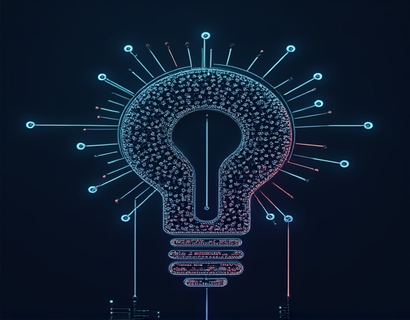Transforming Legal Access: The Power of AI Chat Interfaces in Legaltech
The integration of artificial intelligence in the legal sector has given rise to innovative solutions that bridge the gap between complex legal information and the general public. An AI-driven chat interface stands as a pivotal advancement, offering users a smart and intuitive way to access legal insights and connect with legal professionals. This technology represents a significant leap forward in legal tech, providing a user-friendly platform that simplifies the often daunting process of seeking legal advice and understanding legal concepts.
The Role of AI in Legal Services
Artificial intelligence has the potential to revolutionize various industries, and the legal field is no exception. By leveraging machine learning algorithms and natural language processing, AI chat interfaces can analyze vast amounts of legal data, providing users with accurate and relevant information. These interfaces are designed to understand and respond to user queries in a conversational manner, making legal knowledge more accessible and comprehensible.
The primary goal of integrating AI in legal services is to democratize access to legal information. Traditionally, legal advice and insights were confined to professional circles, accessible primarily through direct lawyer-client relationships. The AI chat interface disrupts this model by offering a direct line to a wealth of legal knowledge, empowering individuals and businesses to make informed decisions without the need for intermediaries.
Simplifying Lawyer Selection
One of the most significant benefits of an AI chat interface in the legal domain is its ability to streamline the process of finding the right lawyer. Users can interact with the chat interface to describe their legal needs, and the AI will suggest suitable legal professionals based on specific criteria such as specialization, location, and client reviews. This personalized approach ensures that users are connected with lawyers who best match their requirements, enhancing the overall legal experience.
The chat interface can also provide users with an overview of different legal practices and the services they offer. By presenting this information in a clear and organized manner, users can better understand the range of options available to them, making the decision-making process less overwhelming and more efficient.
Enhancing Legal Knowledge
Beyond connecting users with lawyers, an AI chat interface serves as a valuable resource for legal education. Users can ask questions about various legal topics, and the AI will provide detailed explanations and relevant case law. This feature is particularly beneficial for individuals who are new to legal matters or need a refresher on specific legal concepts.
The chat interface can cover a wide range of topics, from contract law and intellectual property to family law and employment law. By offering concise and accurate information, the AI helps users build a solid foundation of legal knowledge, enabling them to navigate legal issues with greater confidence.
Real-Time Legal Updates
The legal field is constantly evolving, with new laws, regulations, and precedents being established regularly. An AI chat interface can stay updated with the latest legal developments, providing users with real-time information. This ensures that the legal insights offered are current and relevant, which is crucial for making informed decisions.
Users can ask the AI about recent legal changes in their area of interest, and the chat interface will provide summaries and explanations of these updates. This feature is particularly useful for businesses that need to stay compliant with changing laws, as well as individuals dealing with complex legal matters that may be affected by new legislation.
Building Trust Through Transparency
Trust is a fundamental component of the lawyer-client relationship. An AI chat interface can enhance trust by providing transparent and unbiased information. Unlike traditional legal marketing, which can sometimes be promotional and biased, the AI offers neutral insights based on data and legal principles.
The chat interface can also highlight the credentials and expertise of the lawyers it suggests, giving users a clear understanding of the professionals they are considering. This transparency helps build trust and ensures that users feel confident in their choices.
Improving Efficiency and Reducing Costs
One of the most impactful aspects of an AI chat interface in legal services is its ability to improve efficiency and reduce costs. By automating the initial stages of legal inquiry, the AI frees up lawyers' time to focus on more complex and high-value tasks. This not only speeds up the process for users but also reduces the overall cost of legal services.
Users can get quick answers to common legal questions without the need for extensive consultations, which can be time-consuming and expensive. For businesses, this means they can address legal concerns more promptly, minimizing potential risks and disruptions. For individuals, it means accessing legal guidance without the financial burden of multiple lawyer meetings.
Supporting Legal Decision-Making
The AI chat interface plays a crucial role in supporting users through the legal decision-making process. By providing comprehensive information and personalized recommendations, the AI helps users navigate the complexities of the legal system with ease. This support is particularly valuable for those who may feel intimidated by legal jargon or unsure of where to start.
The chat interface can guide users step-by-step through the legal process, from initial consultation to follow-up actions. This structured approach ensures that users are well-informed at every stage, reducing the likelihood of mistakes and enhancing the overall legal experience.
Challenges and Considerations
While the benefits of an AI chat interface in legal services are significant, there are also challenges and considerations to address. One key issue is the accuracy and reliability of the information provided. The AI must be trained on a robust and up-to-date dataset to ensure that the insights it offers are correct and applicable to the user's specific situation.
Another consideration is the need for human oversight. While AI can handle many aspects of legal inquiry, complex cases may require the expertise of a human lawyer. The chat interface should clearly communicate its limitations and provide options for users to connect with legal professionals when necessary.
The Future of Legal Guidance
The integration of AI chat interfaces in legal services represents a transformative shift in how legal guidance is delivered. As technology continues to advance, these interfaces will become more sophisticated, offering even more personalized and insightful interactions. The future of legal tech holds the promise of making legal services more accessible, affordable, and user-friendly, ultimately empowering more people to take control of their legal affairs.
The potential impact of AI chat interfaces extends beyond individual users to the legal industry as a whole. By enhancing efficiency, reducing costs, and improving access to legal knowledge, these tools can help reshape the legal landscape, making it more responsive to the needs of the modern world.










































